
Faro: The Timeless Gateway to the Algarve
Faro, the capital of Portugal's Algarve region, is a city rich in history, culture, and natural beauty. Nestled along the southern coast, Faro offers visitors a unique blend of old-world charm and modern attractions. The city's historic center, known as Cidade Velha, is surrounded by ancient Roman walls and features cobblestone streets, quaint squares, and stunning architecture. Don't miss the impressive Faro Cathedral and the serene Arco da Vila, a beautiful archway leading into the old town. Beyond its historic heart, Faro boasts a vibrant waterfront with a bustling marina, where you can enjoy leisurely strolls, boat tours, and fresh seafood at local restaurants. The Ria Formosa Natural Park, a protected lagoon system, is a haven for birdwatchers and nature lovers. Here, you can explore the diverse ecosystem by foot, bike, or kayak, and even take a ferry to the pristine beaches of the barrier islands. Faro is also a gateway to the broader Algarve region, renowned for its picturesque villages, golden cliffs, and crystal-clear waters. Whether you're interested in history, nature, or simply relaxing by the sea, Faro offers a little something for everyone.
Local tips in Faro
- Visit the Faro Cathedral for panoramic views of the city from its bell tower.
- Explore Ria Formosa Natural Park early in the morning for the best birdwatching opportunities.
- Take a ferry to Ilha Deserta or Ilha da Culatra for unspoiled beaches and tranquil surroundings.
- Try local delicacies like cataplana, a seafood stew, at one of the waterfront restaurants.
- Use public transport or rent a bike to explore the city and its surroundings conveniently.
Faro: The Timeless Gateway to the Algarve
Faro, the capital of Portugal's Algarve region, is a city rich in history, culture, and natural beauty. Nestled along the southern coast, Faro offers visitors a unique blend of old-world charm and modern attractions. The city's historic center, known as Cidade Velha, is surrounded by ancient Roman walls and features cobblestone streets, quaint squares, and stunning architecture. Don't miss the impressive Faro Cathedral and the serene Arco da Vila, a beautiful archway leading into the old town. Beyond its historic heart, Faro boasts a vibrant waterfront with a bustling marina, where you can enjoy leisurely strolls, boat tours, and fresh seafood at local restaurants. The Ria Formosa Natural Park, a protected lagoon system, is a haven for birdwatchers and nature lovers. Here, you can explore the diverse ecosystem by foot, bike, or kayak, and even take a ferry to the pristine beaches of the barrier islands. Faro is also a gateway to the broader Algarve region, renowned for its picturesque villages, golden cliffs, and crystal-clear waters. Whether you're interested in history, nature, or simply relaxing by the sea, Faro offers a little something for everyone.
When is the best time to go to Faro?
Iconic landmarks you can’t miss
Igreja de Santa Maria
Discover the architectural splendor and spiritual essence of Igreja de Santa Maria, a historic Catholic cathedral in the heart of Faro, Algarve.

Ria Formosa Nature Park
Discover the breathtaking beauty and rich biodiversity of Ria Formosa Nature Park, a coastal paradise in Algarve, Portugal.
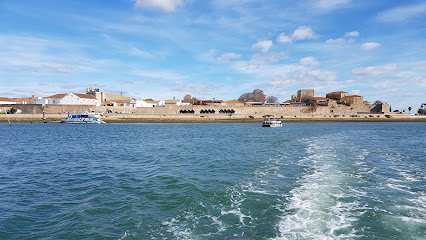
Igreja da Ordem Terceira de Nossa Senhora do Monte do Carmo
Explore the spiritually rich Igreja da Ordem Terceira de Nossa Senhora do Monte do Carmo in Faro, a stunning Catholic church with historical significance and unique features.
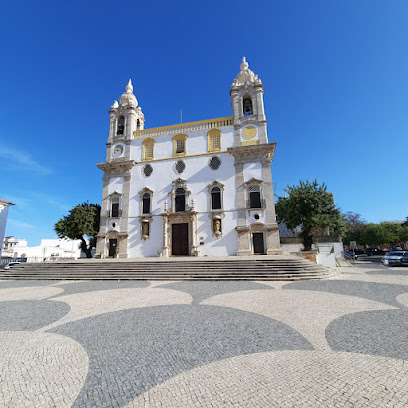
Jardim Manuel Bivar
Discover the beauty and tranquility of Jardim Manuel Bivar, a hidden gem in Faro's heart where nature meets culture in a serene garden setting.
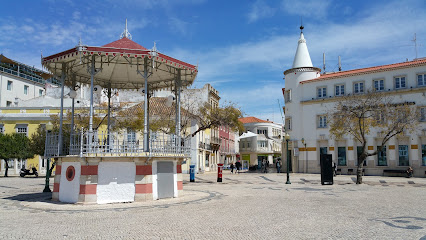
Roman Ruins of Milreu
Unveil the ancient beauty of the Roman Ruins of Milreu, a historical landmark filled with mesmerizing mosaics and rich cultural heritage.
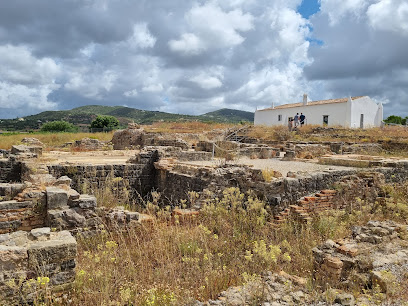
Municipal Museum of Faro
Explore the Municipal Museum of Faro, where history and culture come alive through stunning archaeological exhibits and artistic treasures in the heart of Algarve.

Parque Ribeirinho de Faro
Explore the scenic beauty of Parque Ribeirinho de Faro, a tranquil park offering stunning waterfront views and lush greenery in the heart of Faro, Portugal.
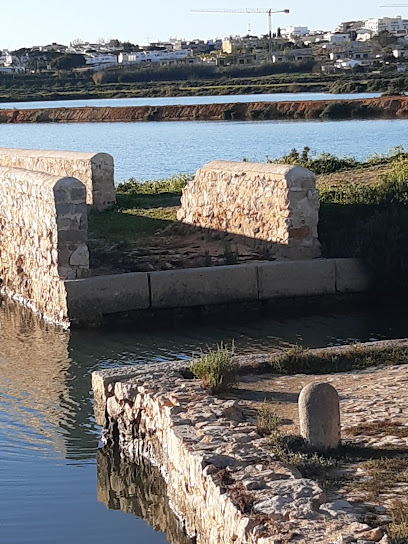
Arco da Vila
Discover the enchanting Arco da Vila, a historical landmark in Faro, Portugal, showcasing stunning neoclassical architecture and vibrant local culture.
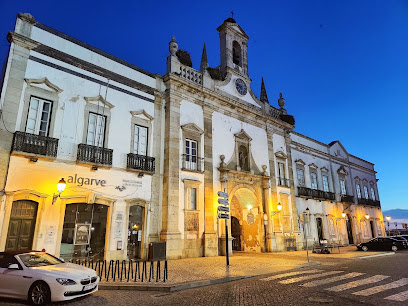
Jardim da Alameda João de Deus
Discover the tranquil beauty of Jardim da Alameda João de Deus, an ecological park rich in flora and wildlife in the heart of Faro, Portugal.
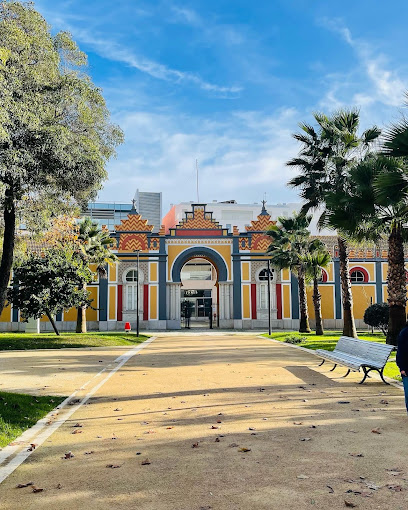
Capela dos Ossos de Faro
Explore the haunting beauty of Capela dos Ossos de Faro, a unique chapel adorned with human bones, reflecting on life and death.
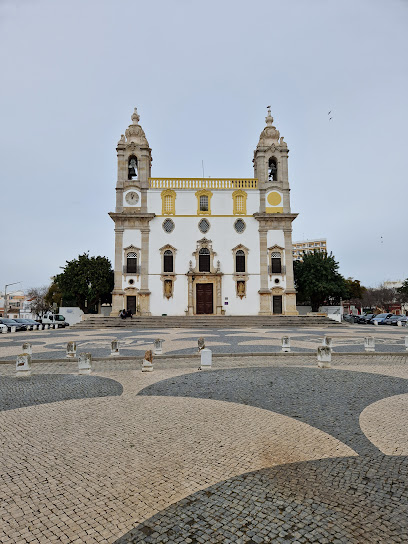
Algarve Life Sciences Center
Discover the Algarve Life Sciences Center: a captivating science museum in Faro showcasing the region's biodiversity and engaging exhibits for all ages.
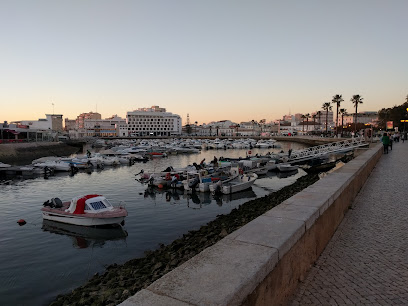
Cidade Velha
Explore Cidade Velha, Faro's historic gem, where ancient architecture meets vibrant culture and captivating stories await every traveler.
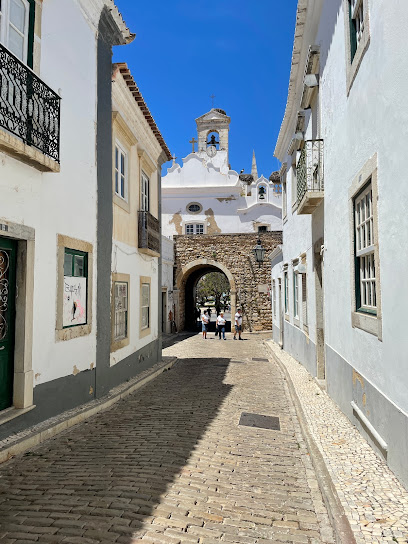
Casa do Arco do Repouso - Muralhas de Faro
Experience the charm and history of Faro at Casa do Arco do Repouso, a captivating landmark that showcases the city's rich cultural heritage.
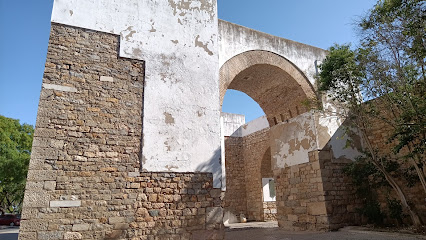
Islands 4 you
Discover the enchanting Algarve with Islands 4 You, offering unforgettable boat tours and scenic adventures in Faro, Portugal.
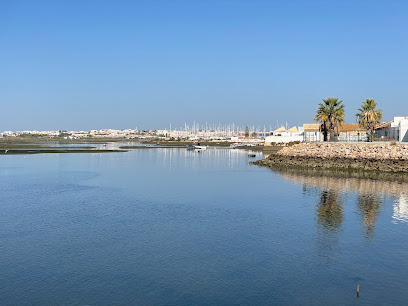
Igreja de São Pedro
Explore the architectural beauty and spiritual serenity of Igreja de São Pedro, a must-visit Catholic church in the heart of Faro, Portugal.
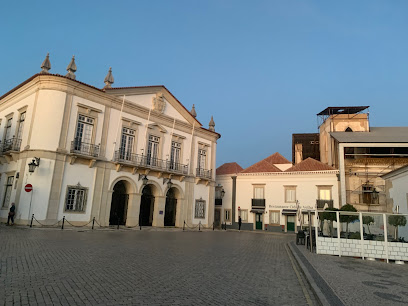
Unmissable attractions to see
Benagil Cave
Discover the enchanting Benagil Cave in Lagoa, Portugal, a stunning natural wonder perfect for adventurers and nature lovers seeking breathtaking coastal views.
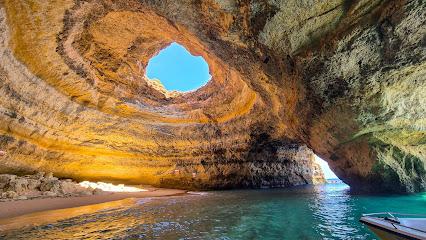
Albufeira Old Town
Explore Albufeira Old Town, a historical gem on Portugal's Algarve coast, offering charming streets, delicious cuisine, and stunning ocean views.

Castelo de Silves
Uncover the rich history and stunning views at Castelo de Silves, a must-visit castle in Portugal that captivates every traveler.
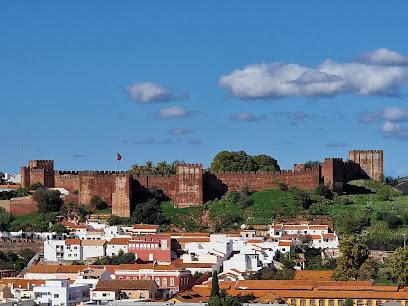
Praia da Falésia
Experience the stunning cliffs and golden sands of Praia da Falésia, a breathtaking beach destination in Portugal's Algarve region.

Marinha Beach
Discover the breathtaking beauty and tranquility of Marinha Beach, a top destination on Portugal's stunning Algarve coastline.

Marina de Albufeira
Experience the charm of Marina de Albufeira—where adventure meets relaxation in the heart of the Algarve's stunning coastline.
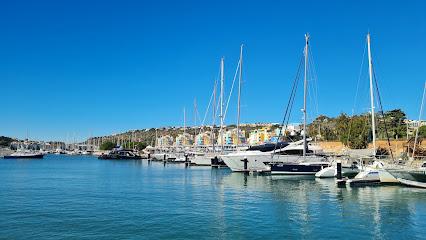
Marina de Vilamoura
Experience luxury and adventure at Marina de Vilamoura, the stunning hub of leisure and excitement in Portugal's picturesque Algarve region.
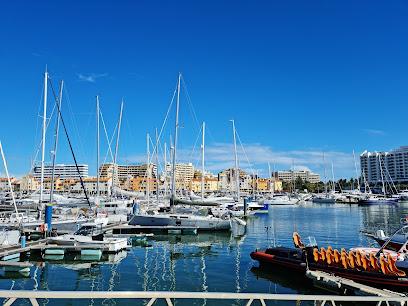
Castelo de Tavira
Discover the historic Castelo de Tavira, a stunning castle with panoramic views and rich history in the heart of Algarve, Portugal.
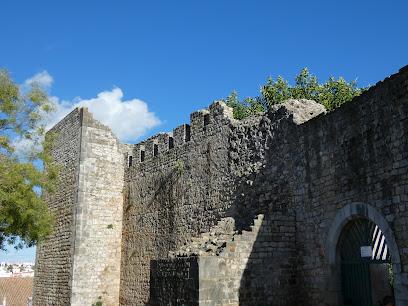
Algar Seco
Explore Algar Seco, a breathtaking coastal gem in Carvoeiro, Portugal, known for stunning cliffs, unique rock formations, and crystal-clear waters.
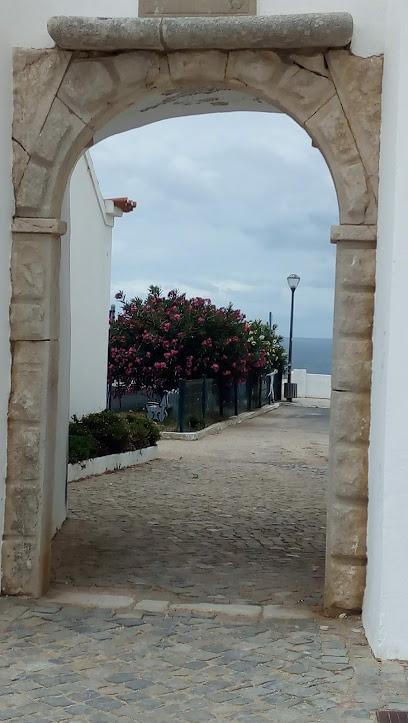
Praia da Oura
Experience the vibrant atmosphere and stunning beauty of Praia da Oura, a premier beach destination in Albufeira, Portugal.
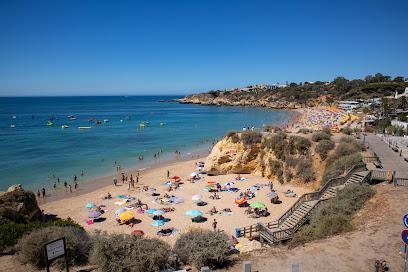
Beach Olhos de Água
Experience the natural beauty of Beach Olhos de Água, a stunning coastal paradise with golden sands, crystal-clear waters, and vibrant local culture.
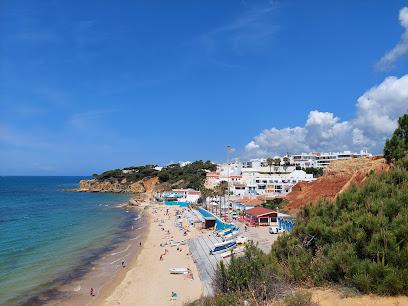
Praia Santa Eulália
Explore the beauty of Praia Santa Eulália, a stunning beach in Portugal, perfect for relaxation, water sports, and vibrant nightlife.
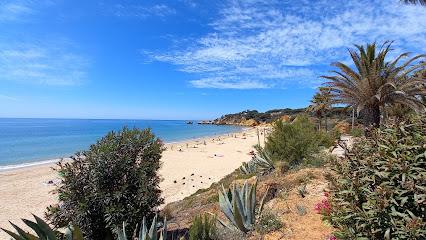
Igreja de Santa Maria
Explore the architectural splendor and historical significance of Igreja de Santa Maria, a must-see cathedral in the heart of Faro, Portugal.

Praia dos Alemães
Experience the breathtaking beauty and lively atmosphere of Praia dos Alemães, the must-visit beach in Albufeira, Portugal, for sun and fun.
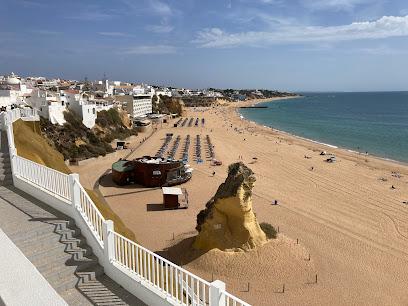
Algarve Charters
Discover the stunning coastline of Albufeira with Algarve Charters - your gateway to unforgettable boat tours and seaside adventures in the Algarve.

Essential places to dine
O Coreto
Savor authentic Portuguese cuisine at O Coreto in Faro's scenic Praça Dom Francisco Gomes – a must-visit dining experience.
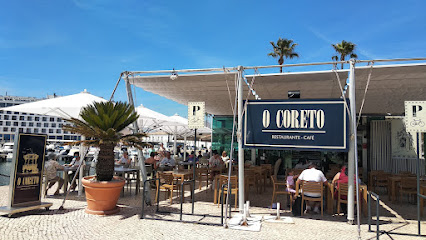
Restaurante Chefe Branco
Experience authentic Portuguese cuisine at Restaurante Chefe Branco in Faro – where tradition meets taste in every delightful dish.
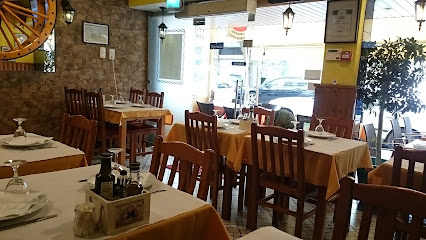
Faaron steakhouse
Discover exquisite Mediterranean flavors at Faaron Steakhouse in Faro – where succulent steaks meet fine wines in an inviting atmosphere.
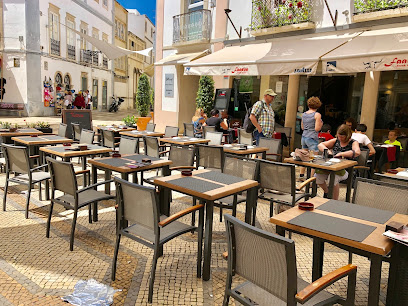
À do Pinto
Experience authentic Portuguese cuisine at À do Pinto in Faro, where fresh seafood meets an extensive wine selection in a cozy atmosphere.
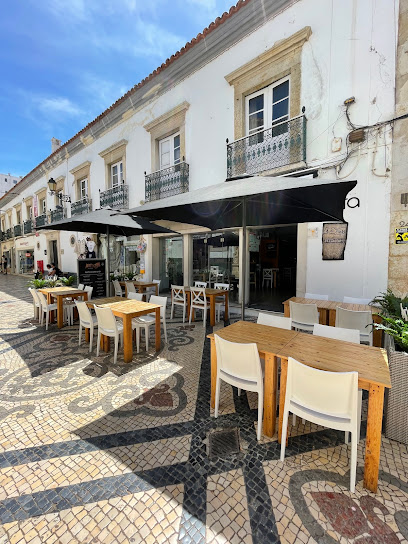
Elementos
Discover the vibrant flavors of Mediterranean cuisine at Elementos in Faro – where delicious food meets lively entertainment.
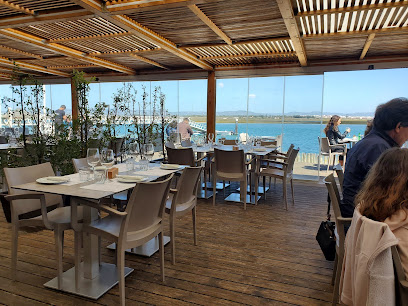
Restaurante l'Osteria - Faro
Experience authentic Italian cuisine at Restaurante l'Osteria in Faro – where every dish tells a story.
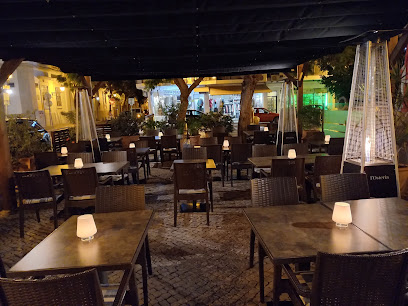
Vila Adentro
Experience the rich flavors of Portugal at Vila Adentro – where culinary excellence meets artistic expression in the heart of Faro.
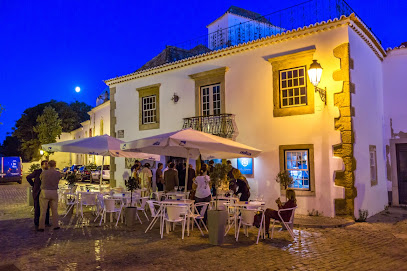
2 Irmãos
Discover authentic Portuguese flavors at 2 Irmãos in Faro - where every dish tells a story.
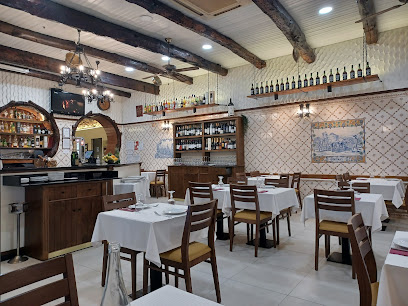
Cidade Velha
Experience authentic Portuguese cuisine at Cidade Velha in Faro's historic Old Town - where tradition meets flavor.
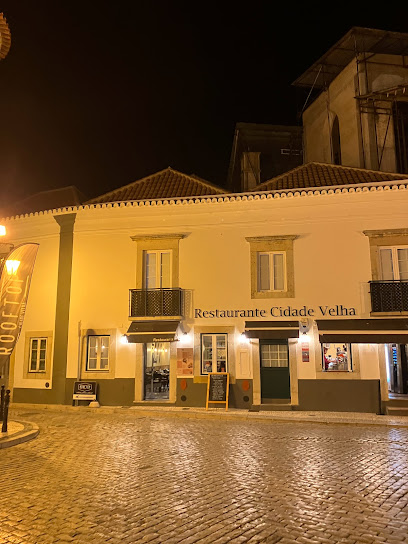
La Forchetta
Discover authentic Italian flavors at La Forchetta in Faro - where every dish tells a story.
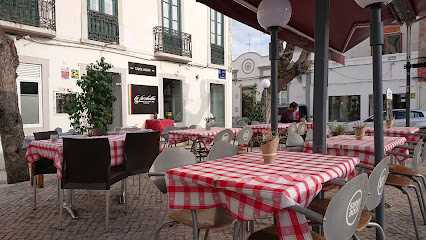
Zé Maria
Experience authentic Portuguese cuisine at Zé Maria in Faro – where local flavors meet a warm ambiance.
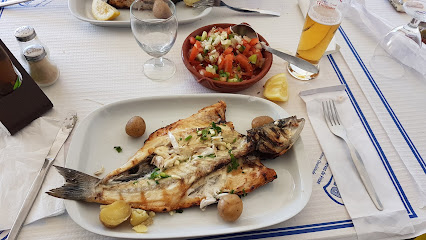
Se7e Pedras
Discover the flavors of Portugal at Se7e Pedras – where traditional tapas meet exceptional wine in a warm and inviting atmosphere.
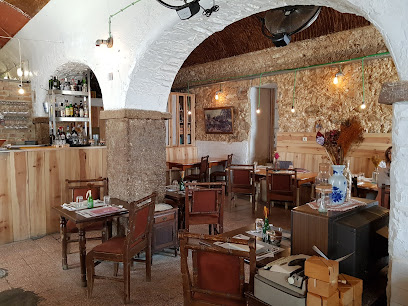
A Venda
Experience authentic Portuguese flavors at A Venda in Faro – a must-visit tavern for food lovers exploring the Algarve region.
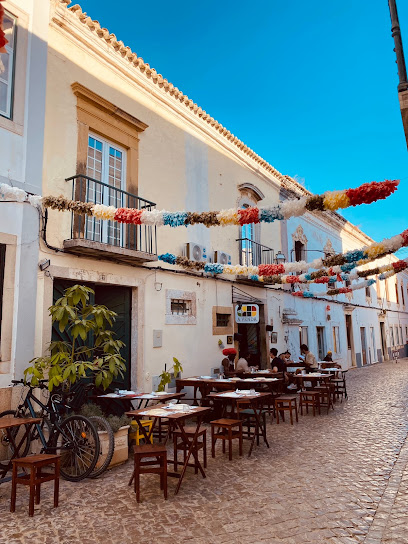
Restaurante Estaminé
Discover exquisite seafood and traditional Portuguese cuisine at Restaurante Estaminé on stunning Ilha Deserta.
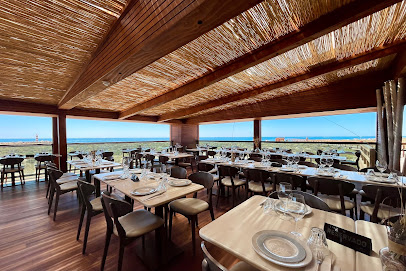
Tertúlia Algarvia
Experience authentic Portuguese cuisine at Tertúlia Algarvia in Faro, where culinary tradition meets modern dining.
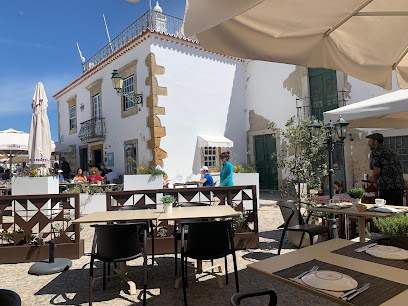
Markets, malls and hidden boutiques
Forum Algarve
Discover the vibrant shopping and dining experience at Forum Algarve, the ultimate destination for tourists in Faro, Portugal.
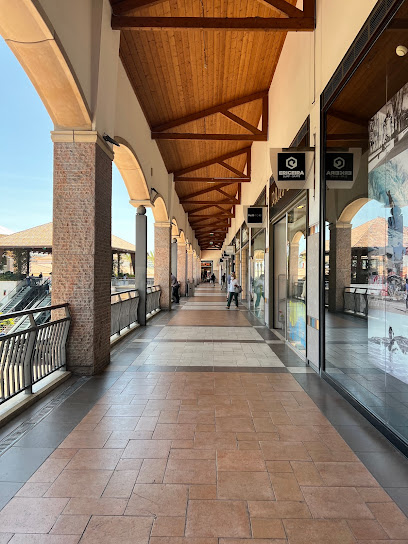
Faroshopping
Explore the vibrant shopping scene at Faroshopping, a premier destination in Faro offering diverse retail, dining, and entertainment options.
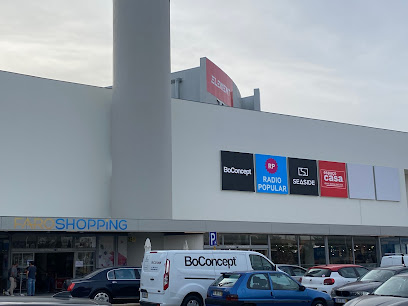
ALE-HOP Faro
Explore ALE-HOP Faro for unique souvenirs and gifts that capture the essence of the Algarve region, perfect for your travel memories.
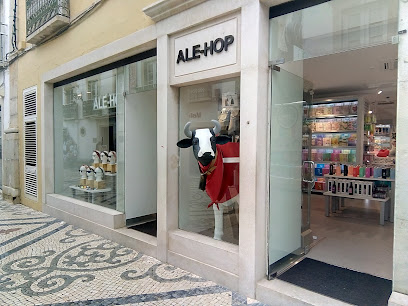
MANGO
Explore MANGO in Faro for trendy women's clothing and stylish accessories that fit every occasion and personal style.
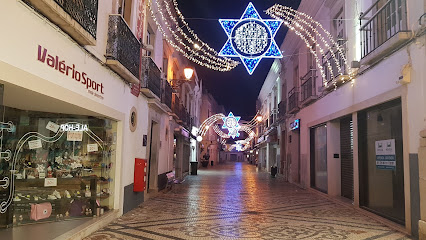
Espaço Luzitano
Discover unique handcrafted gifts and local artisan products at Espaço Luzitano, an essential stop for tourists in Faro, Portugal.
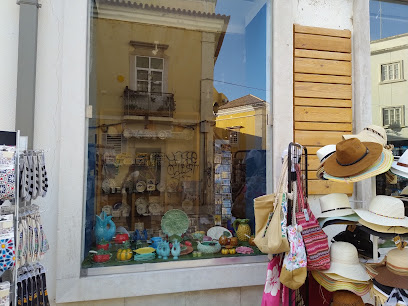
IN CHIC FARO
Discover unique fashion treasures at In Chic Faro, where style meets the vibrant spirit of the Algarve.
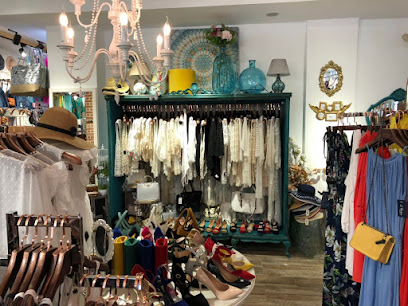
ANTONIO MANUEL Personal concept clothing store
Explore Antonio Manuel Clothing Store in Faro for unique fashion pieces and stylish accessories that embody the spirit of Portugal.
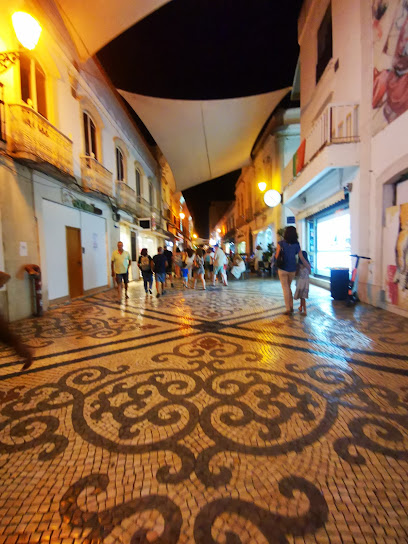
Boutique dos Relógios
Explore a diverse collection of exquisite timepieces at Boutique dos Relógios in Faro, where elegance meets exceptional service.
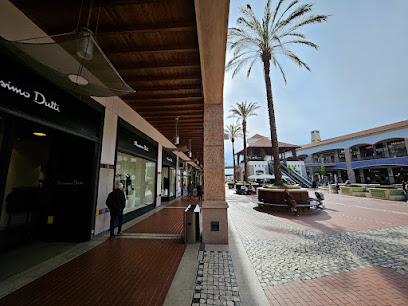
BATALHA COLLECTION
Explore Batalha Collection in Faro for an enchanting selection of antiques and vintage treasures that celebrate history and craftsmanship.
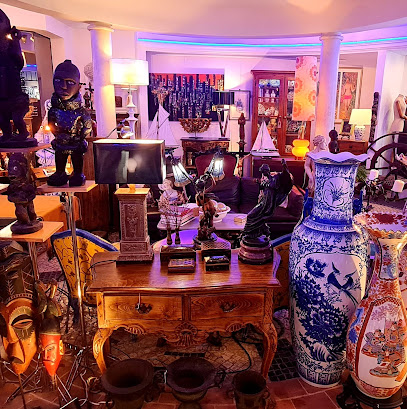
Retalhos de Portugal - Produtos Tradicionais
Explore Retalhos de Portugal for exquisite traditional gifts and local artisan products in the heart of Faro, a must-visit for every tourist.
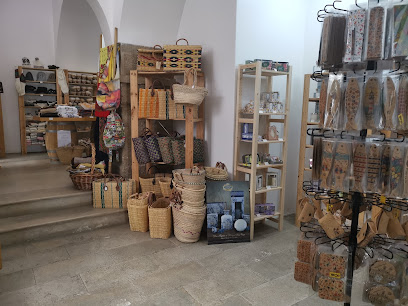
Konceito.R
Explore the charm of vintage fashion at Konceito.R in Faro, Portugal – a must-visit for unique clothing finds and sustainable shopping.
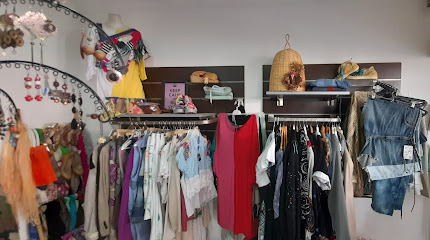
Gifts and Souvenirs Shop 2 Sardinhas
Explore the charm of Faro at Gifts and Souvenirs Shop 2 Sardinhas, your destination for unique local gifts and authentic Portuguese crafts.
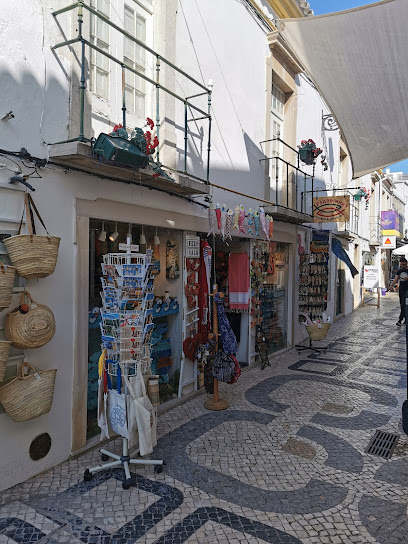
Drivintagee
Explore Drivintagee in Faro for an unforgettable vintage shopping experience, organic products, and a creative coworking space.
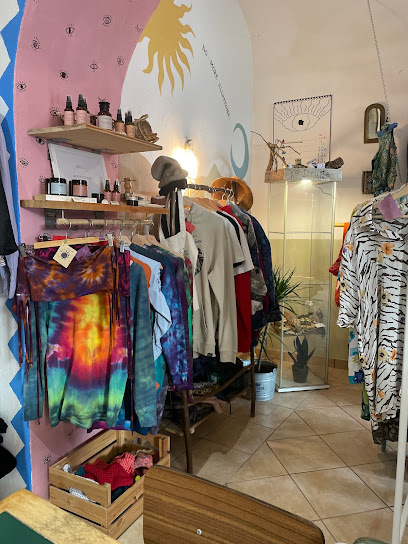
Shop1one Faro
Shop1one Faro: A delightful clothing store offering stylish apparel and a welcoming atmosphere in the heart of Faro, Portugal.
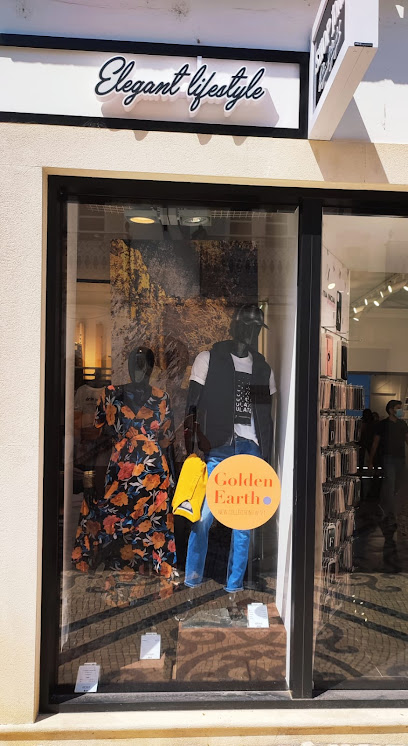
Pedemeia - Faro
Discover Pedemeia in Faro, a clothing store offering stylish apparel and accessories perfect for every fashion enthusiast visiting the Algarve.
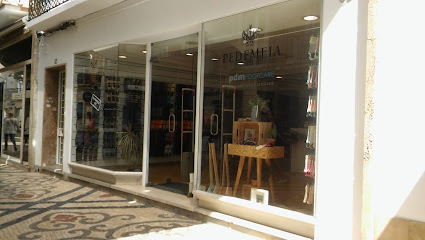
Essential bars & hidden hideouts
Columbus
Savor the flavors of Portugal at Columbus, a vibrant restaurant and cocktail bar in Faro, known for its unique dishes, cocktails, and live music.
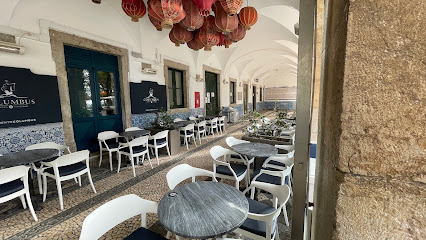
Aperitivo
Experience the vibrant nightlife and authentic flavors of Faro at Aperitivo, where culinary delights and crafted cocktails await.
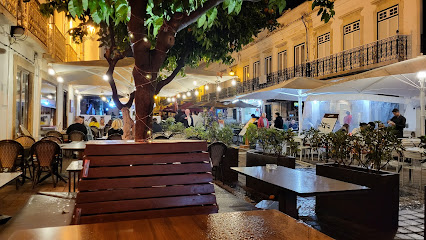
Piper's Irish Pub & Bar
Experience the lively atmosphere and authentic flavors of Ireland at Piper's Irish Pub & Bar in Faro, a must-visit for tourists seeking local culture.
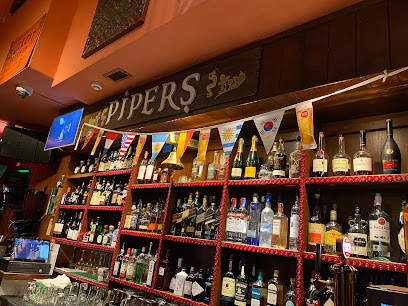
LAB Terrace - Sunset Bar
Experience unforgettable sunsets and delightful drinks at LAB Terrace - Sunset Bar, Faro's premier destination for relaxation and entertainment.
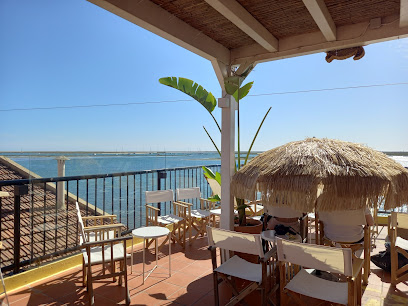
3 POINTS
Discover the vibrant atmosphere of 3 POINTS in Faro, where delicious fast food and crafted cocktails meet the excitement of live sports.
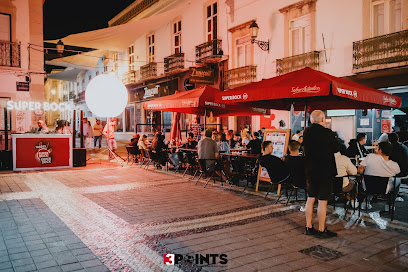
Boheme
Experience the vibrant nightlife of Faro at Boheme, a lively bar offering unique cocktails and live music in a welcoming atmosphere.
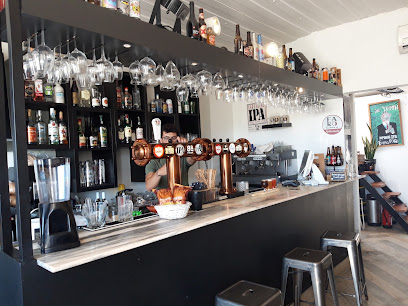
Grains 864
Discover Grains 864 in Faro, a cozy bar offering an extensive beer selection and a lively atmosphere perfect for unwinding after a day of exploration.
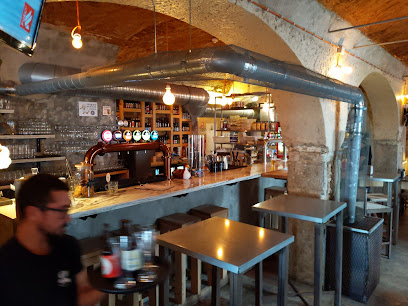
Baixaria Bar
Discover the vibrant nightlife at Baixaria Bar in Faro, where great drinks and unforgettable memories await in a lively atmosphere.
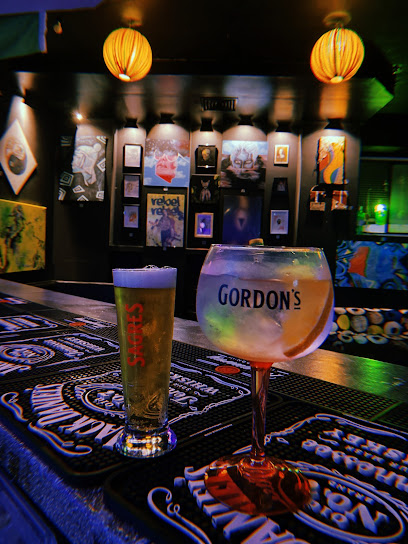
Eme lounge
Experience the vibrant nightlife at Eme Lounge in Faro, where delicious cocktails and a lively atmosphere await you.
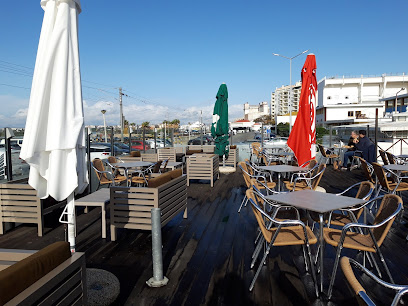
Madalena
Experience the vibrant nightlife of Faro at Madalena, where delicious drinks meet lively entertainment in a cozy atmosphere.
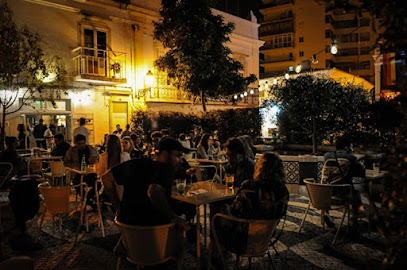
Anchor
Discover the lively atmosphere of Anchor Pub in Faro, where vibrant nightlife and friendly locals create unforgettable experiences.
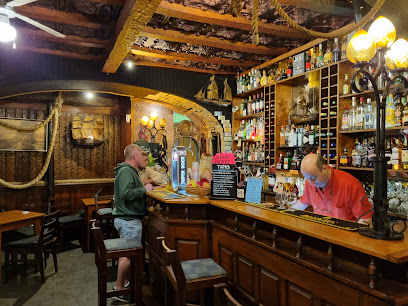
Call In Faro
Experience the vibrant nightlife at Call In Faro, where friendly vibes meet affordable drinks in the heart of the Algarve.
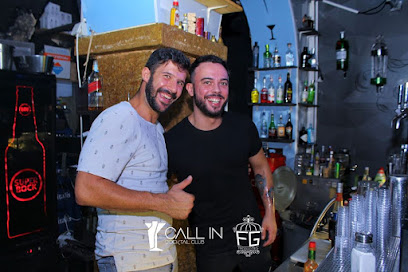
Bago Wine Bar
Experience the best of Portuguese wines at Bago Wine Bar, a delightful destination for wine lovers in the heart of Faro.
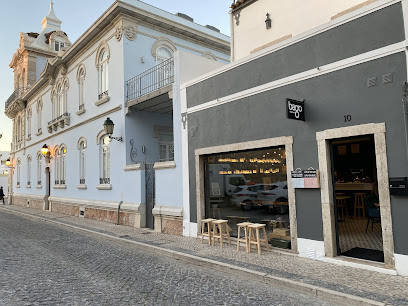
Varandas Bar
Experience the vibrant nightlife at Varandas Bar in Faro, where expertly crafted cocktails and a lively atmosphere await you.
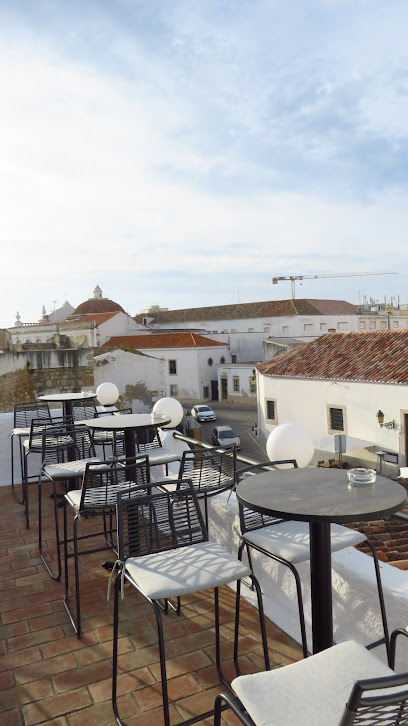
Travel experiences inspired by this city
Explore more travel diariesLocal Phrases
-
- HelloOlá
[oh-lah] - GoodbyeAdeus
[ah-deh-oosh] - YesSim
[seem] - NoNão
[now] - Please/You're welcomePor favor/De nada
[por fah-vohr/deh nah-dah] - Thank youObrigado/Obrigada
[oh-bree-gah-doo/oh-bree-gah-dah] - Excuse me/SorryCom licença/Desculpe
[kohm lee-sehn-sah/deh-skool-peh] - How are you?Como está?
[koh-moh ehs-tah] - Fine. And you?Bem. E você?
[behn/eh voh-seh] - Do you speak English?Fala inglês?
[fah-lah een-glehsh] - I don't understandNão percebo
[now pehr-seh-boo]
- HelloOlá
-
- I'd like to see the menu, pleaseGostaria de ver o menu, por favor
[goh-stah-ree-ah deh vehr ooh meh-noo/por fah-vohr] - I don't eat meatNão como carne
[now koh-moh kahr-neh] - Cheers!Saúde!
[sah-oo-deh] - I would like to pay, pleaseGostaria de pagar, por favor
[goh-stah-ree-ah deh pah-gahr/por fah-vohr]
- I'd like to see the menu, pleaseGostaria de ver o menu, por favor
-
- Help!Ajuda!
[ah-zhoo-dah] - Go away!Vai embora!
[vah-ee ehm-boh-rah] - Call the Police!Chame a polícia!
[shah-meh ah poh-lee-see-ah] - Call a doctor!Chame um médico!
[shah-meh oom meh-dee-koo] - I'm lostEstou perdido
[eh-stoh pehr-dee-doo] - I'm illEstou doente
[eh-stoh doo-ehn-teh]
- Help!Ajuda!
-
- I'd like to buy...Gostaria de comprar...
[goh-stah-ree-ah deh kohm-prahr] - I'm just lookingEstou só a ver
[eh-stoh soh ah vehr] - How much is it?Quanto custa?
[kwan-toh koosh-tah] - That's too expensiveIsso é muito caro
[ee-soh eh moo-ee-toh kah-roo] - Can you lower the price?Pode baixar o preço?
[poh-deh bahy-shahr ooh preh-soo]
- I'd like to buy...Gostaria de comprar...
-
- What time is it?Que horas são?
[keh oh-rah shoun] - It's one o'clockÉ uma hora
[eh oo-mah oh-rah] - Half past (10)Meia (10)
[may-ah] - MorningManhã
[mah-nyah] - AfternoonTarde
[tahr-dih] - EveningNoite
[noy-teh] - YesterdayOntem
[ohn-tehm] - TodayHoje
[oh-zheh] - TomorrowAmanhã
[ah-mahn-yah] - 1Um
[oom] - 2Dois
[doh-ees] - 3Três
[trehs] - 4Quatro
[kwah-troh] - 5Cinco
[seen-koh] - 6Seis
[saysh] - 7Sete
[seh-teh] - 8Oito
[oy-toh] - 9Nove
[noh-veh] - 10Dez
[dehz]
- What time is it?Que horas são?
-
- Where's a/the...?Onde fica o/a...?
[ohn-deh fee-kah ooh/ah] - What's the address?Qual é o endereço?
[kwahl eh ooh ehn-day-reh-soh] - Can you show me (on the map)?Pode mostrar-me (no mapa)?
[poh-deh mohs-trahr-meh/noo mah-pah] - When's the next (bus)?Quando é o próximo (autocarro)?
[kwahn-doo eh ooh proh-ksee-moh/ow-toh-kah-roo] - A ticket (to ....)Um bilhete (para ...)
[oom bee-lheh-teh/pah-rah]
- Where's a/the...?Onde fica o/a...?
History of Faro
-
Faro, known as Ossonoba during Roman times, was an important urban center. Archaeological findings reveal that it was a bustling trade hub, benefiting from its strategic coastal position. Remnants of Roman walls and mosaics can still be seen, providing a glimpse into its illustrious past.
-
In the 8th century, the Moors conquered Faro, renaming it Santa Maria do Ocidente. During this period, the city flourished as a cultural and commercial center. The influence of Moorish architecture is evident in the narrow, winding streets and traditional buildings of the old town.
-
Faro was recaptured by Christian forces in 1249 under King Afonso III. This marked the beginning of a new era, with the construction of religious buildings such as the Faro Cathedral on the site of a former mosque, symbolizing the city's transformation.
-
The 16th century was a period of prosperity for Faro. The city became a leading center for maritime trade and saw the construction of significant structures like the Bishop's Palace and the Arco da Vila. It also faced challenges, including a devastating attack by English privateer Francis Drake in 1596.
-
The Great Lisbon Earthquake of 1755 had a profound impact on Faro. Although the city was spared the worst, it suffered considerable damage. The earthquake led to significant rebuilding efforts, resulting in the Baroque and neoclassical architecture that characterizes much of Faro today.
-
The 19th century brought modernization to Faro, including the introduction of the railway in 1889. This development boosted the local economy and facilitated greater connectivity, transforming Faro into a vital transport hub in the Algarve region.
-
Faro is rich in cultural heritage, with numerous museums and historic sites. The Municipal Museum, housed in a former convent, and the Carmo Church, with its eerie Chapel of Bones, are notable landmarks. The city's vibrant cultural scene is celebrated through events like the Faro International Motorcycle Rally and the Festival F.
Faro Essentials
-
Faro is well-connected by air, rail, and road. Faro Airport (FAO) is the main gateway, with numerous international and domestic flights. From the airport, you can take a bus, taxi, or rental car to the city center, which is about 7 kilometers away. Faro is also accessible by train, with regular services from Lisbon and other major cities in Portugal. Long-distance buses operate between Faro and cities across Portugal and Spain.
-
Faro's public transportation system includes buses operated by Próximo, which cover the city and surrounding areas. Taxis and ride-sharing services are also available. For exploring the Algarve region, renting a car can be a convenient option. The city center is compact and walkable, making it easy to explore on foot. Bicycles are another popular mode of transport, with several rental options available.
-
The official currency in Portugal is the Euro (€). Credit and debit cards are widely accepted in Faro, especially in hotels, restaurants, and larger shops. However, it's a good idea to carry some cash for smaller establishments and markets. ATMs are plentiful throughout the city. Tipping in Faro is not mandatory but is appreciated, typically around 5-10% of the bill.
-
Faro is generally a safe city for tourists, but it's wise to take standard precautions. Avoid poorly lit areas at night and be cautious of pickpockets in crowded places like markets and public transport. The neighborhoods of Penha and Horta da Areia have higher crime rates, so it's best to stay vigilant if you visit these areas. Always keep an eye on your belongings and use hotel safes for valuables.
-
In case of an emergency, dial 112 for police, fire, or medical assistance. Faro Hospital (Hospital de Faro) is the main medical facility in the city. Pharmacies are plentiful and can provide assistance for minor health issues. It's recommended to have travel insurance that covers medical emergencies. English is widely spoken by emergency services personnel.
-
Fashion: Do dress casually and comfortably but respect local customs by avoiding overly revealing clothing, especially when visiting religious sites. Religion: Do be respectful in churches and other religious sites; cover your shoulders and knees. Public Transport: Do offer your seat to elderly passengers and don't talk loudly or eat on public transport. Greetings: Do greet people with a handshake or a friendly 'Bom dia' (Good day). Eating & Drinking: Do try local delicacies and wines; don't rush your meals, as dining is a leisurely activity in Faro.
-
To experience Faro like a local, visit the Municipal Market (Mercado Municipal de Faro) for fresh produce and local delicacies. Explore the historic Old Town (Cidade Velha) with its cobbled streets and charming architecture. Enjoy a leisurely coffee at a local café and try 'Pastel de Nata,' a traditional Portuguese pastry. For a unique experience, take a boat tour through the Ria Formosa Natural Park, a stunning area of lagoons and islands.
Trending Landmark in Faro
-
Igreja de Santa Maria
-
Ria Formosa Nature Park
-
Igreja da Ordem Terceira de Nossa Senhora do Monte do Carmo
-
Jardim Manuel Bivar
-
Roman Ruins of Milreu
-
Municipal Museum of Faro
-
Parque Ribeirinho de Faro
-
Arco da Vila
-
Jardim da Alameda João de Deus
-
Capela dos Ossos de Faro
-
Algarve Life Sciences Center
-
Cidade Velha
-
Casa do Arco do Repouso - Muralhas de Faro
-
Islands 4 you
-
Igreja de São Pedro
Nearby Cities to Faro
-
Things To Do in Huelva
-
Things To Do in Cádiz
-
Things To Do in Évora
-
Things To Do in Seville
-
Things To Do in Setúbal
-
Things To Do in Lisbon
-
Things To Do in Badajoz
-
Things To Do in Cascais
-
Things To Do in Tangier
-
Things To Do in Sintra
-
Things To Do in Asilah
-
Things To Do in Ronda
-
Things To Do in Casemates Square
-
Things To Do in Gibraltar
-
Things To Do in Main Street



















